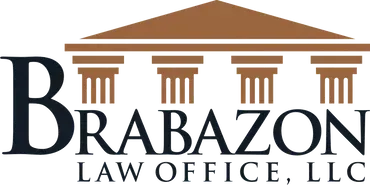Wills, Trusts, and Estate Planning
The process of estate planning involves discussing options and making plans with advisors regarding your property and assets at the time of your death. Depending on the estate, advice from a variety of professionals may be needed, such as an estate planning attorney, financial planner, accountant, life insurance advisor, broker, and banker. At Brabazon Law Office in Green Bay, WI, we have extensive knowledge of estate planning law to help our clients.

Meeting with an estate-planning lawyer to plan for your death is not an easy experience for most people. However, leaving your family without a plan causes additional heartache and difficulty during an already emotionally devastating time. Developing a comprehensive plan is a selfless gift that eliminates a headache caused by a lack of planning.
The planning process covers the transfer of property at the time of death, possibly tax planning, and other decisions. The core document is the will, but the estate plan may include other documents. The documents of a comprehensive state plan may include the will, revocable living trust, power of attorney for finances or health care, and a living will. Your estate-planning attorney can explain your options and help you determine what is needed in your situation.
Wills
A will provides for the distribution of property owned by you at the time of your death in any manner you choose. Your will cannot, however, dispose of properties that pass outside your probate estate (such as certain joint property, life insurance, retirement plans, and employee death benefits) unless they are payable to your estate.
Wills can be of various degrees of complexity and can be utilized to achieve a wide range of family and tax objectives. If a will provides for the outright distribution of assets, it is sometimes characterized as a simple will. If the will establishes one or more trusts, it is often called a testamentary trust will. Alternatively, the will may leave probate assets to a preexisting inter vivos trust (created in your lifetime), in which case it is called a pour-over will. In either case, the purpose of the trust (as opposed to outright distribution) is to ensure continued property management and creditor protection for the surviving family members, to provide for charities, and to minimize taxes.
Your will, whether a simple will or a complex will, is personal to you. Your will may do more than simply provide for the distribution of your property. Your will may also provide for the following:
- You may designate a guardian for your minor child or children if you have survived the other parent.
- You may designate a personal representative (executor) of your estate in your will and eliminate the need for a bond.
- You may choose to acknowledge or otherwise provide for a child (e.g., stepchild, godchild, etc.) in whom you have an interest, an elderly parent, or other individuals.
- If you are acting as custodian for the assets of a child or grandchild under the Uniform Gift (or Transfers) to Minors Act, you may designate your successor custodian and avoid the expense of a court appointment.
What are the Types of Non-probate Property?
Jointly Owned Property
If you own property with another person as joint tenants with the right of survivorship, that is, not as tenants in common, the property will pass directly to the remaining joint tenant upon your death and will not be a part of your probate estate. (It will, however, be a part of your taxable estate.) Frequently, people (particularly in old age) will cause bank accounts or securities to be placed in the name of the owner with one or more children or trusted friends as joint tenants with the right of survivorship. This is sometimes done as a matter of convenience to give the joint tenant continuing access to accounts to pay bills.
It is important to realize that the ownership of property in this fashion often leads to unexpected or unwanted results. Disputes, including litigation, are common between the estate of the original owner and the surviving joint tenant as to whether the survivor's name was added as a matter of convenience and/or management or whether a gift was intended. The planning built into a well-drawn will may be partially or completely thwarted by an inadvertently created joint tenancy that passes property to a beneficiary by operation of law, rather than under the terms of the will.
Many of these problems are also applicable to institutional revocable trusts and "pay on death" forms of ownership of bank, broker, and mutual fund accounts and savings bonds. Effective planning requires knowledge of the consequences of each property interest and technique.
Durable Power of Attorney: Who Should Be My Agent?
You may wish to choose a family member to act on your behalf. Many people name their spouses or one or more children. In naming more than one person to act as an agent at the same time, be alert to the possibility that all may not be available to act when needed, or they may not agree. The designation of co-agents should indicate whether you wish to have the majority act in the absence of full availability and agreement. You should name a successor agent to address the possibility that the person you name as an agent may be unavailable or unable to act when the time comes.
There are no special qualifications necessary for someone to act as an attorney-in-fact except that the person must not be a minor or otherwise incapacitated. The best choice is someone you trust.
Living Will and Healthcare Power of Attorney
With the increasing ability of medical science to sustain our lives, people are living much longer than ever before. Unfortunately, as we grow older and experience poor health, we may find ourselves in a position where decisions need to be made as to how we wish to be treated in a variety of medical situations at the end of our lives. Further, sometimes we find ourselves in a condition where we can no longer express our preferences. Advanced healthcare directives allow us to deal with these situations. Without such directives, your family may find it necessary to obtain court orders to deal with your medical situation.
Revocable Living Trusts
Many times, clients make appointments to discuss setting up a living trust but are surprised when they meet with us, to find the differences between a Will and a Living Trust. In many cases, a living trust is not necessary to achieve the goals of the client. We have saved numerous clients thousands of dollars just by helping them decide whether they need a living trust or a will.
The term "living trust" is generally used to describe a trust which you can create during your lifetime, and which you can revoke or amend whenever you wish to do so. You can also create an "irrevocable" living trust, but that is permanent and unchangeable and is almost exclusively done to produce certain tax results beyond the scope of this summary.
A "living trust" is legally in existence during your life, has a current trustee, and owns property that you transfer to it during your life. While you are living, the trustee (usually you) is responsible for managing the property as you direct for your benefit. Upon your death, the trustee is generally directed to either distribute the trust property to your beneficiaries or to continue to hold it and manage it for the benefit of your beneficiaries. Like a will, a living trust can provide for the distribution of property upon your death. Unlike a will, it can also (1) provide you with a vehicle for managing your property during your life, and (2) authorize the trustee to manage the property and use it for your benefit (and your family's) if you should become incapacitated, thereby avoiding the appointment of a guardian for that purpose.
The probate and estate planning attorneys at Brabazon Law Office will listen to your concerns to draft a complete estate plan personal to your wishes and needs. Call us today at 920-494-1106 to set up a time to discuss your estate plan.





